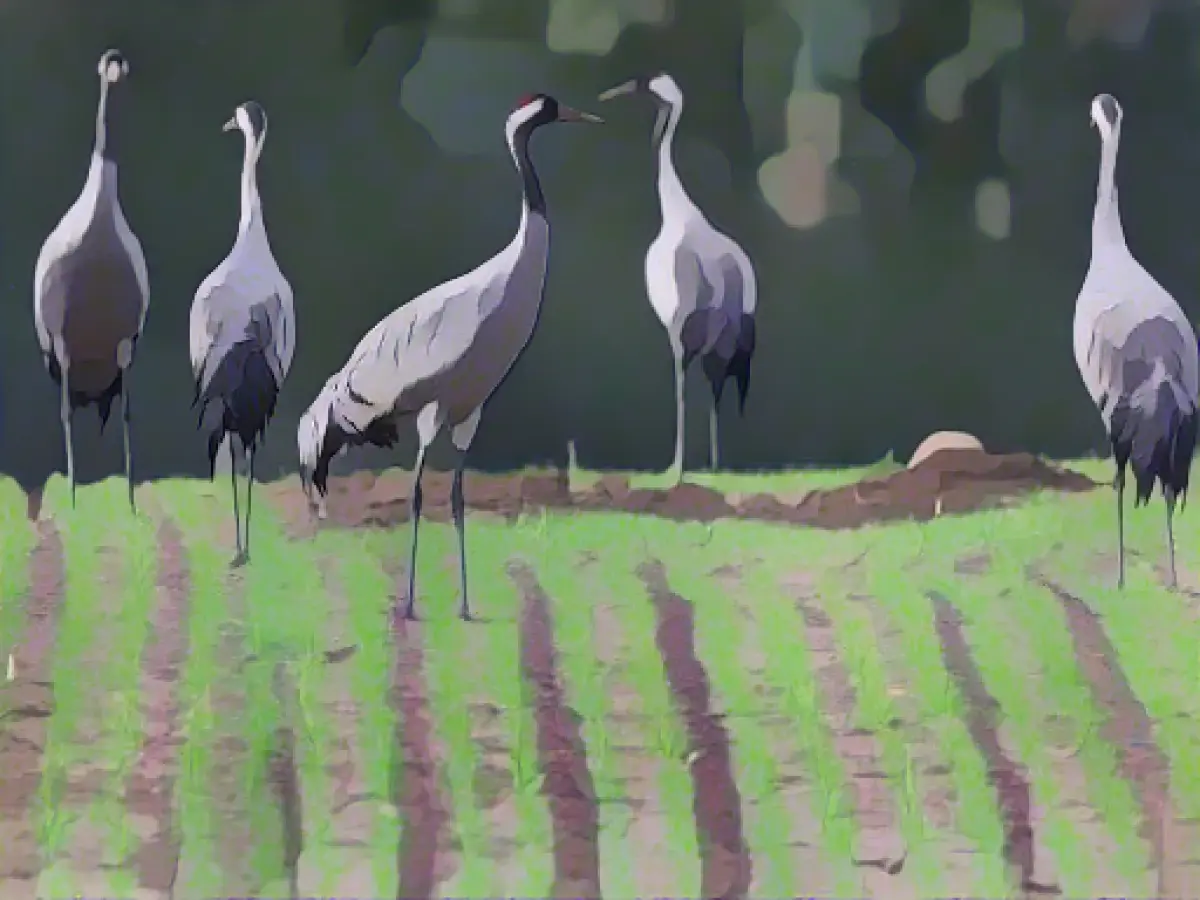Warm fall has an impact on wildlife
According to experts, the mild autumn can upset the rhythm of animals - with far-reaching consequences. Many birds, especially short-distance migrants such as starlings, are not yet on their way to the Mediterranean region, explained biologist Angelika Nelson from the nature conservation association LBV. The German Nature and Biodiversity Conservation Union (Nabu) has also observed a change in the migration behavior of cranes: This year, they lingered longer at the resting places in northern and eastern Germany and were delayed in migrating south.
The LBV is calling for more efforts to protect the climate. The changes in the course of the year could have far-reaching consequences for ecosystems, explained Nelson. "Relationships between different creatures that have been established over the years are being thrown out of sync." For hedgehogs, for example, it may still be too warm for hibernation. However, they find it harder to find food because insects, spiders and worms are already hiding in sheltered places. According to the biologist, bats are also still flying around in search of food.
Long-distance migrants are left behind
Experts such as Wolfgang Fiedler from the Max Planck Institute of Animal Behavior in Radolfzell on Lake Constance have observed a clear trend towards short-distance migrants changing their departure times depending on the weather and in some cases returning earlier from their wintering grounds. Long-distance migrants, on the other hand, are distinctly migratory - and it looks as if they are now at a disadvantage, says Fiedler. "It is noticeable that the species whose populations are declining the most are also the ones that migrate the furthest and react the weakest to an early spring."
The late returnees may not be able to find suitable nesting sites in spring because they are already occupied, said Nelson. The early returnees could also start breeding earlier in the year - this could become a problem for the cuckoo, for example, when it comes out of its winter quarters, says Nabu expert Martin Rümmler. "The small window of time in which it could have smuggled an egg into a foreign nest is then already closed."
More and more are not migrating at all
In general, more and more birds are staying in Germany in winter. One example of this is the white stork. "The urge to migrate is still there. But there are individuals that deviate from this. This results in a new migratory behavior," said Rümmler. The reasons for this have not yet been researched in detail. The chiffchaff could also increasingly spend the winter in this country, said Fiedler. In the past, there were observations of the leaf warbler every few years in winter, but now it is being spotted in more and more places.
Classic hibernators such as the blue tit and great tit would have to share the scarce food with other species during the cold season, said Nelson. However, global warming could also lead to songbirds such as tits and blackbirds from Scandinavian countries no longer coming to us as winter guests, but staying in the north, Rümmler pointed out. Observations of waterfowl such as ducks and coots suggest this, added Fiedler. "It looks as if they are no longer making the long journey from north-eastern Europe to the large lakes in the Alpine foothills."
- The impact of the warm fall on wildlife extends beyond animals, affecting the entire environment and climate protection efforts.
- The changes in seasons can disrupt the ecosystem, affecting relationships between different creatures, such as hedgehogs and their food sources.
- Long-distance migrant birds, like cuckoos, may face difficulties in finding suitable nesting sites because of the early return of short-distance migrants.
- Climate change and global warming are causing more birds, such as white storks and chiffchaffs, to stay in Germany during winter, leading to changes in migratory behavior.
- Classical hibernators and winter guests, such as blue and great tits, may have to share scarce food resources in the cold season due to changes in migration patterns, while waterfowl like ducks and coots might not make the long journey to certain areas anymore.
Source: www.dpa.com








